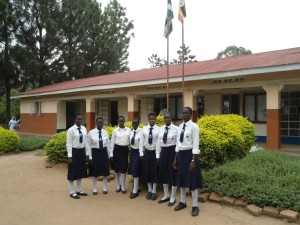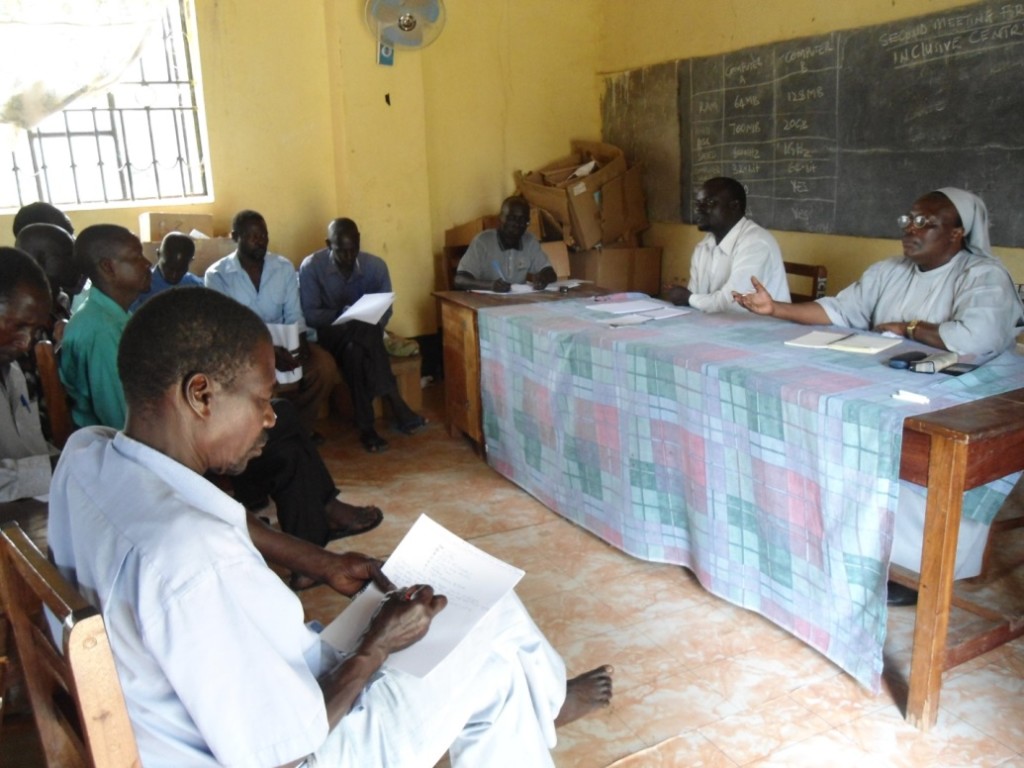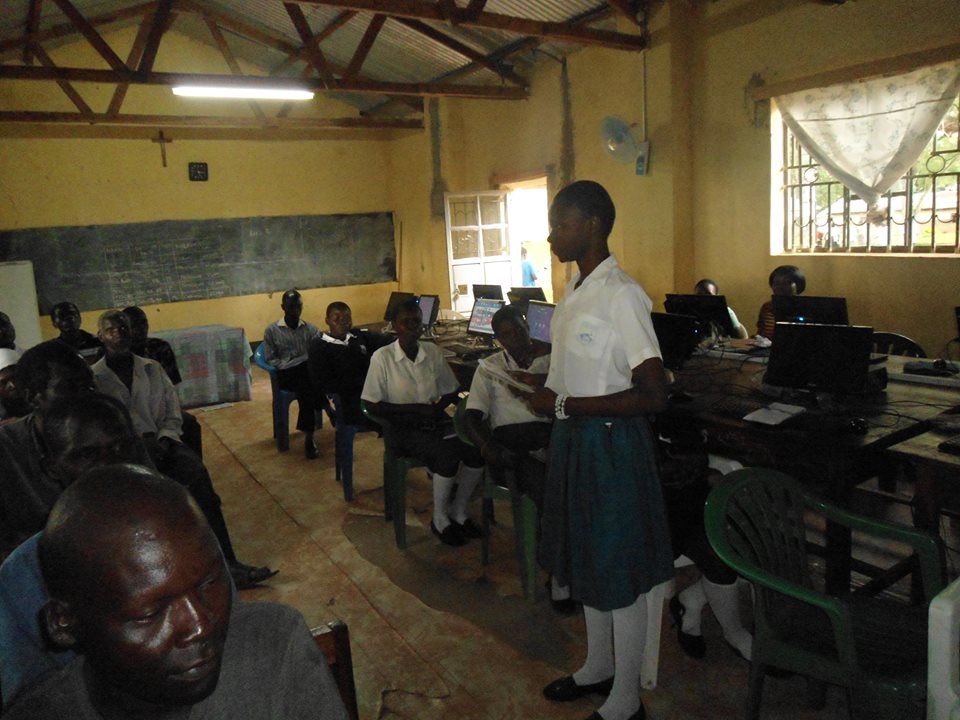
Located in Uganda’s Oyam district, an area traumatised by two-decades of LRA (Lord’s Resistance Army) conflict, Iceme Girls’ Senior Secondary School is using its newly-established Digital Inclusion Centre to educate, empower and support its students and surrounding community to heal the scars of the past.
One of the oldest schools in northern Uganda, Iceme Girls’ SS suffered greatly under LRA attacks: property was destroyed, lives were lost, pupils and teachers were abducted and, on many occasions, forced to flee and live in exile. But today the situation has stabilised and the school is leading the way on the road to recovery. It has been working on projects that unite the community to forge a way forward together. As Head Teacher Sister Clare Migisha says, “Iceme Girls’ Senior Secondary School has taken courage to stand out from the crowd.”
Although the school has gradually recovered, the surrounding community has struggled to pick up the pieces. It was left scattered and unprepared to deal with the poverty, disease, violence and unemployment brought on by years of war. But a Community Development Initiative (CODI) that was inspired by the eLearning Africa conference, which took place in Kampala, Uganda, in 2014, is helping to revive the region.
In a workshop held by conference speaker Valerie Wood-Gaiger, Sister Clare was introduced to the ‘Learn with Grandma’ initiative – an initiative that focuses on intergenerational learning. Wood-Gaiger’s programme is an example of how the young can share their technological skills with the older generations and, in return, the young are exposed to the older people’s stories and knowledge.
Seeing the potential of the intergenerational learning approach to use technology to empower elders, Iceme Girls’ SS teachers were taught ICT skills and the school established the Iceme Girls’ Digital Inclusion Centre (IGDIC). The aim of the centre is to “avail members within the community around the school with ICT related opportunities to enable them to get involved in the sustainable development of their community.”
Community members are invited to share their knowledge and take part in ICT programmes, which involve showing inspirational videos and demonstrating better methods of farming.
“Iceme Girls’ Digital Inclusion Centre is a centre for learning, sharing and interacting with one another in order to find out how we can best transform our rural community. It is through ICT that we can all come together; the young and old, teachers and students, local council leaders and the people they lead so that we can all move in the same direction,” Sister Clare says.
Under the motto ‘Wan Otwero’ (Yes we Can), the IGDIC not only provides a meeting point for harmonious living between the school and the community, but it also links up with development partners to explore and create better resources through ICT, and provides post-war recovery programmes and psychosocial relief.
Sister Clare has shared the following images with eLearning Africa to show the initiative in action, and the positive impacts the IGDIC is having on the community so far.

Mr Otiti Patrick and Mr Otim Cyprian interacting with community leaders
























Congratulations Sister for your initiative to involve the community in learning.
Iam Gratified at the improvement in the School.
Lovely Article – thank you. It is also a good illustration of how Learn with Grandma works. I share ideas & Encourage; inspire people to Take Action – do what they can to improve things in their community. Then sharing what they are achieving to prove to others that they too can Take Action. Using ICT we CAN all work together to help make our little planet a safer; more loving and beautiful place. Our little planet is our HOME – lets cherish it and all our neighbours in the global village. Incidentally I also suggested the community garden project!! Me talking about intergenerational learning
http://youtu.be/DjaLBx-Cnhc.